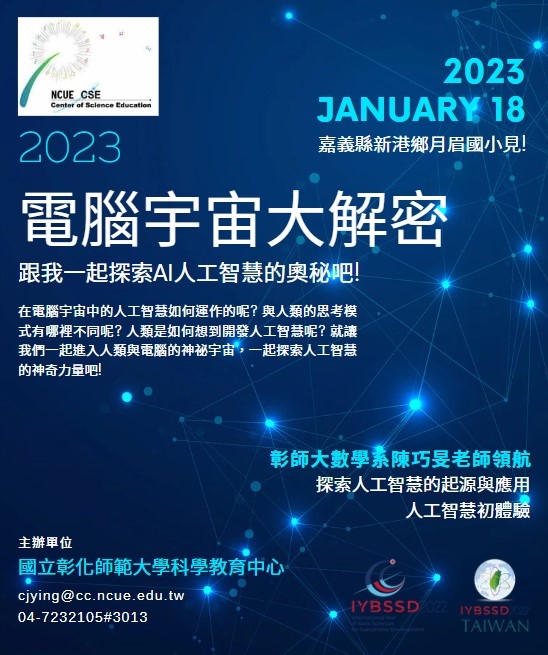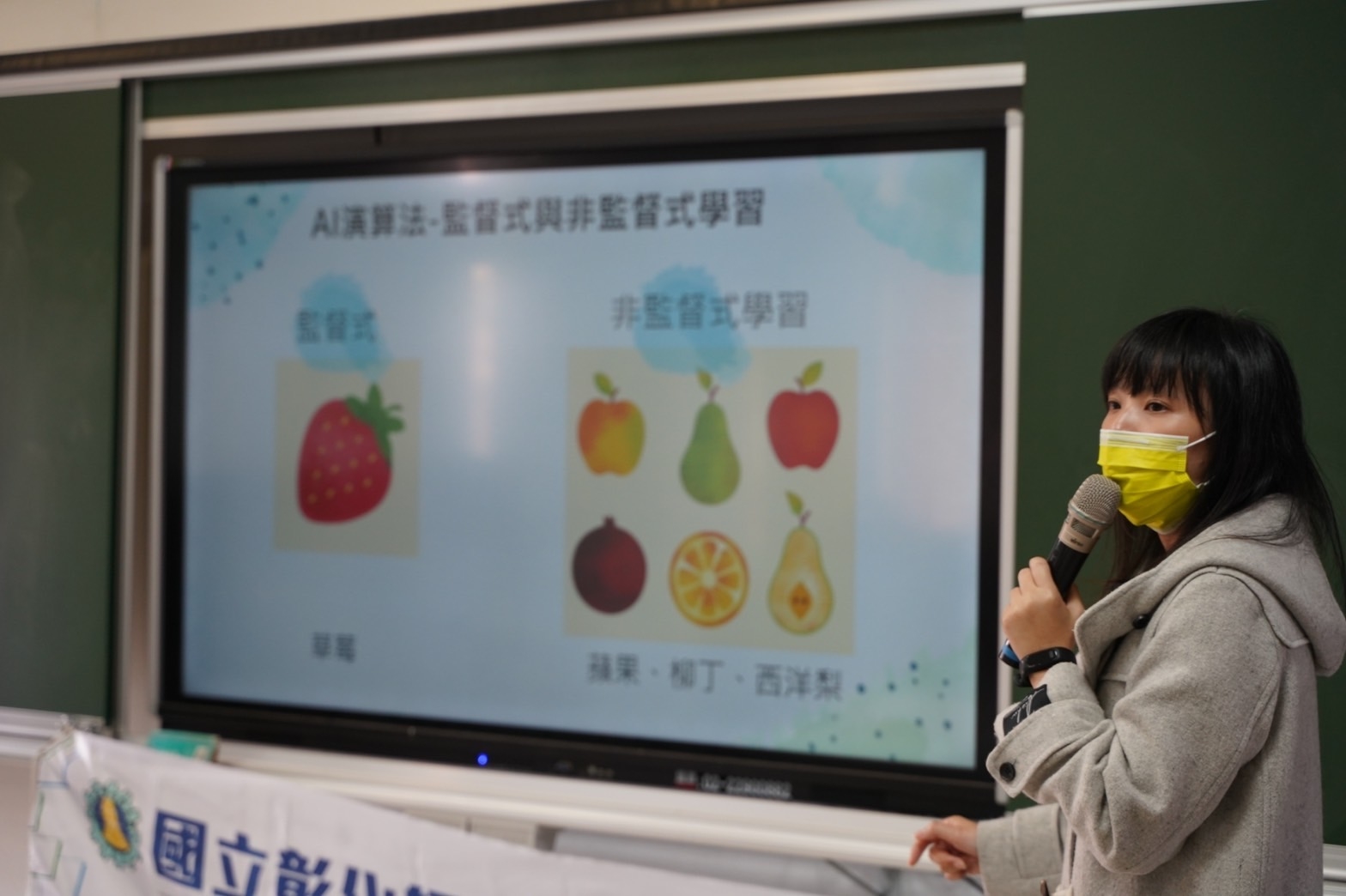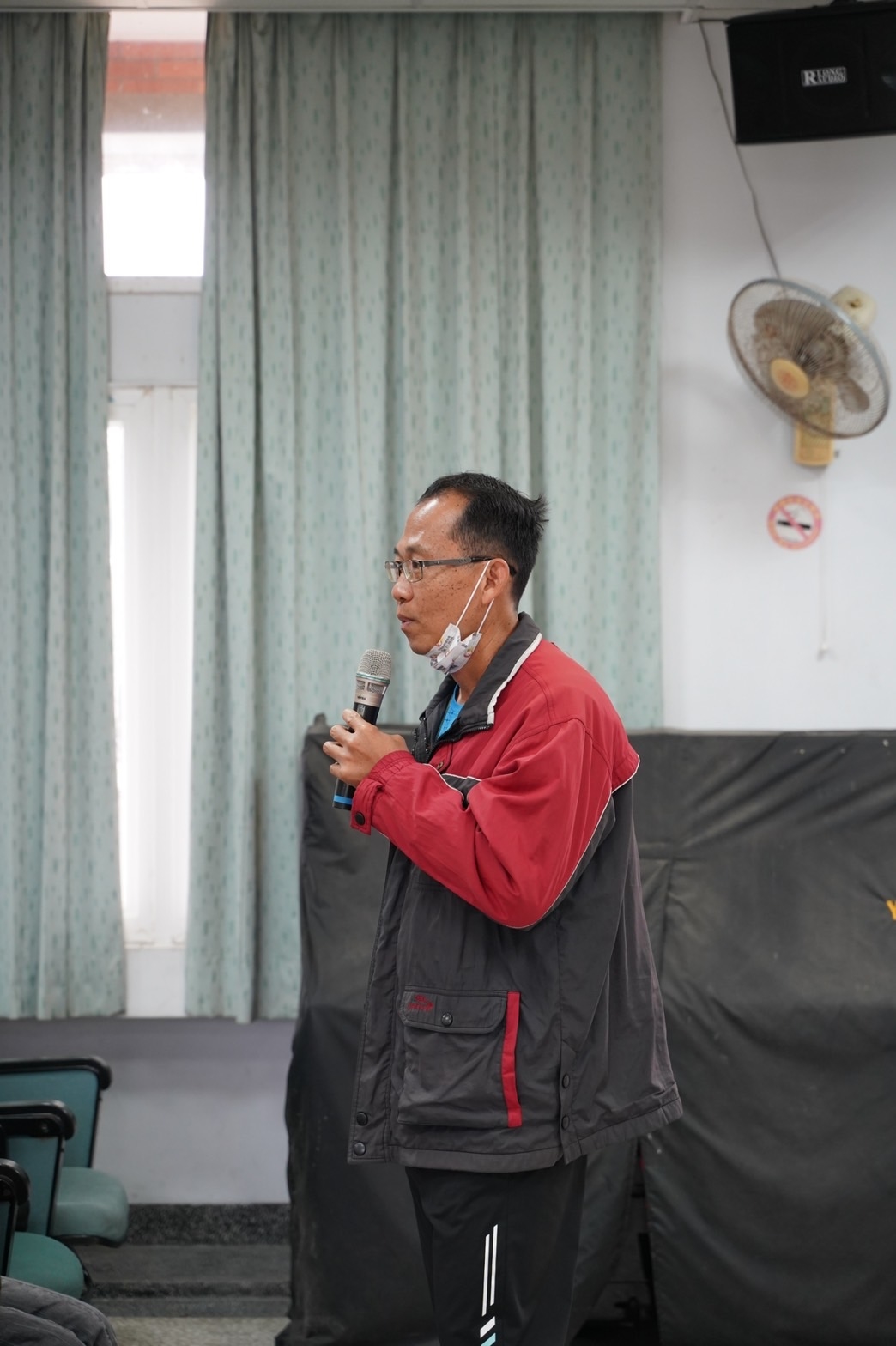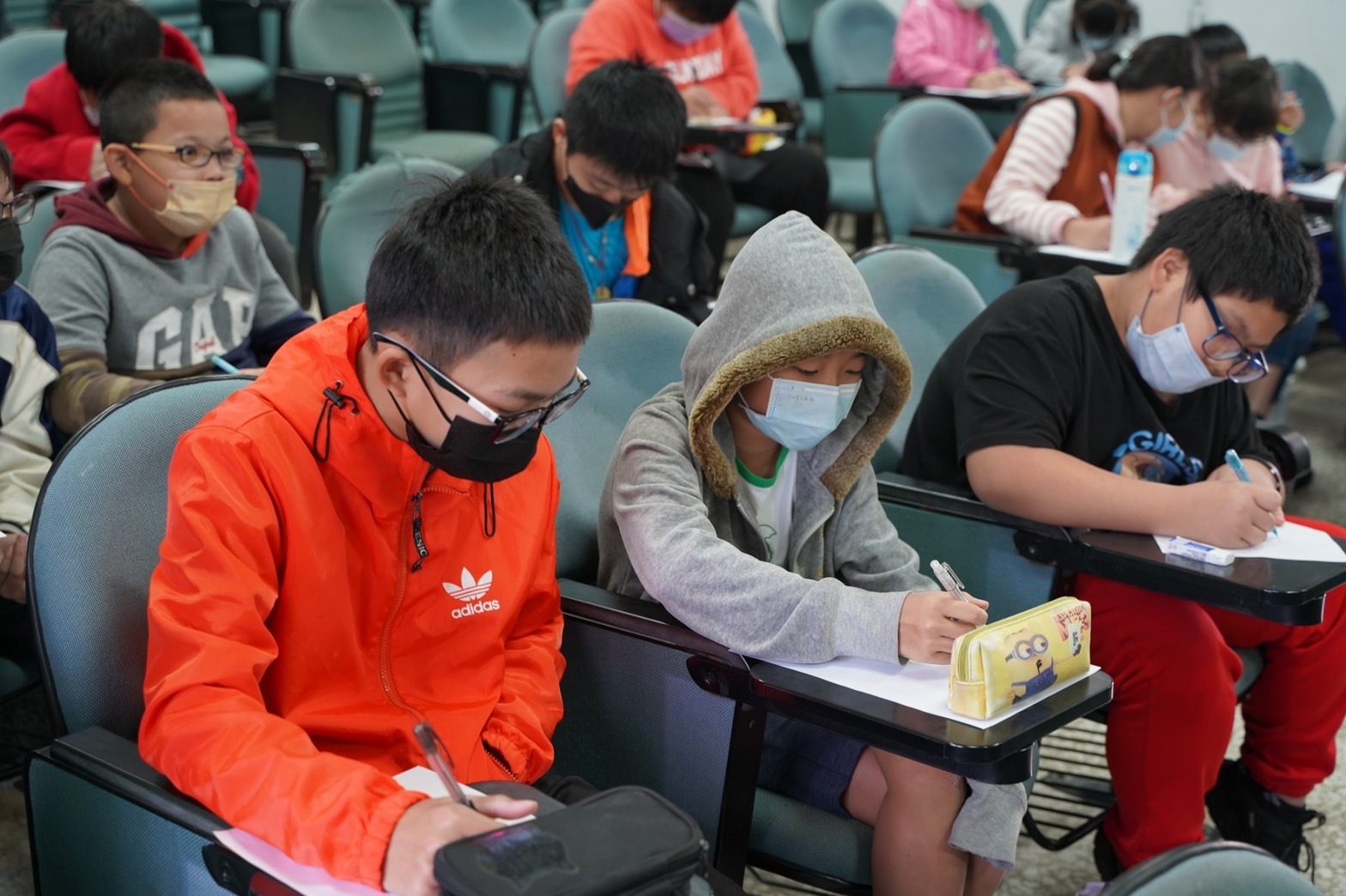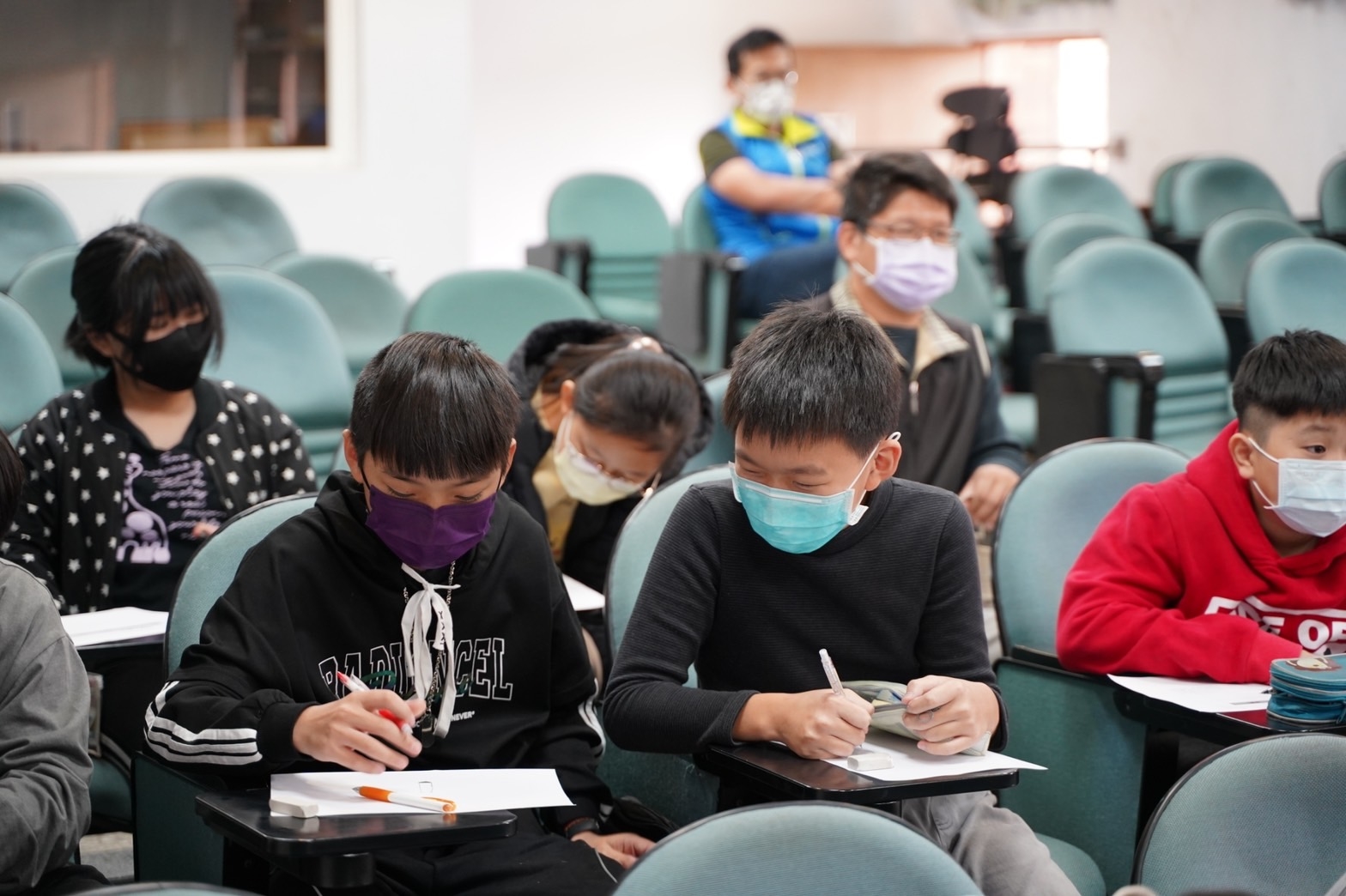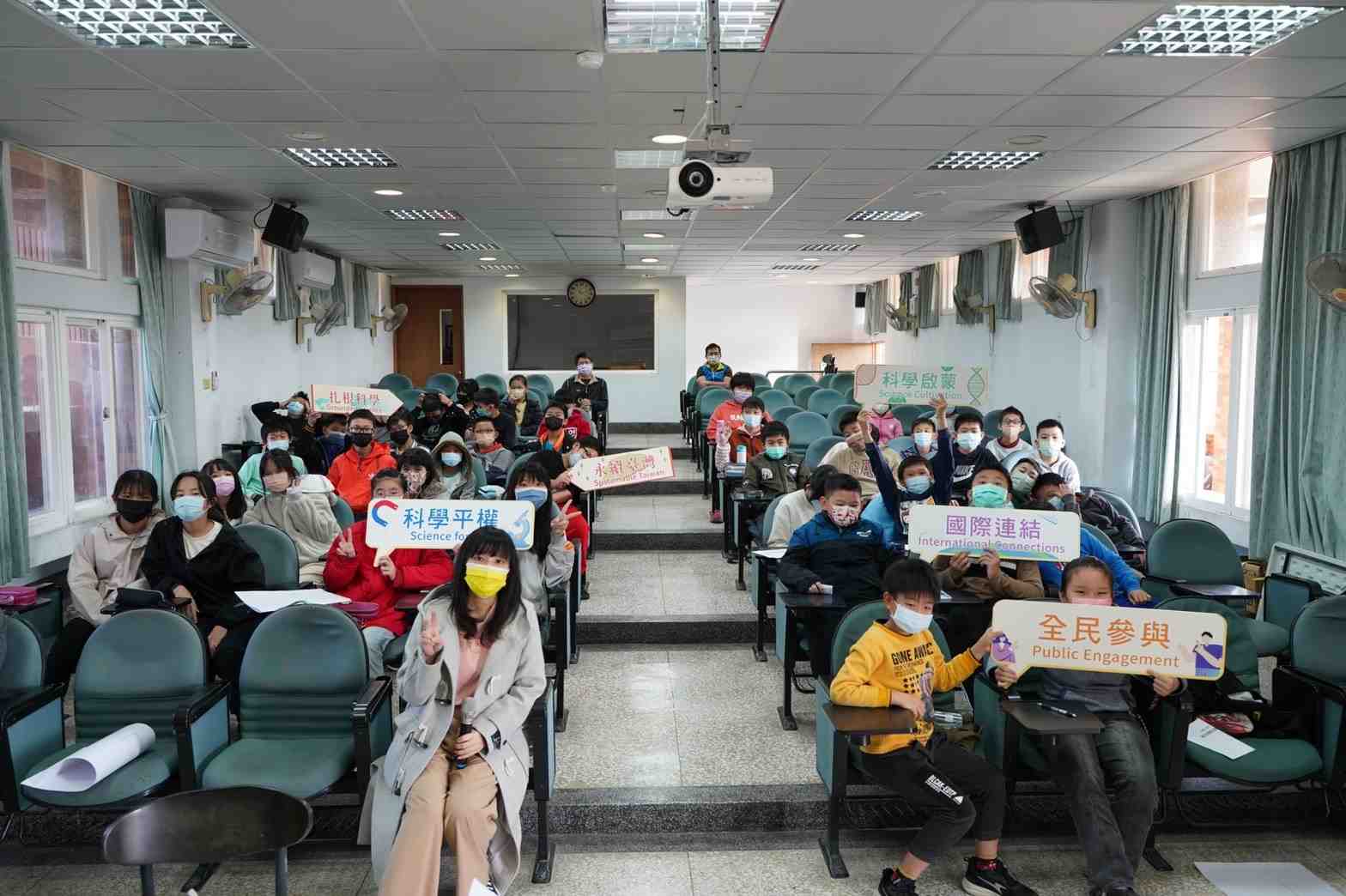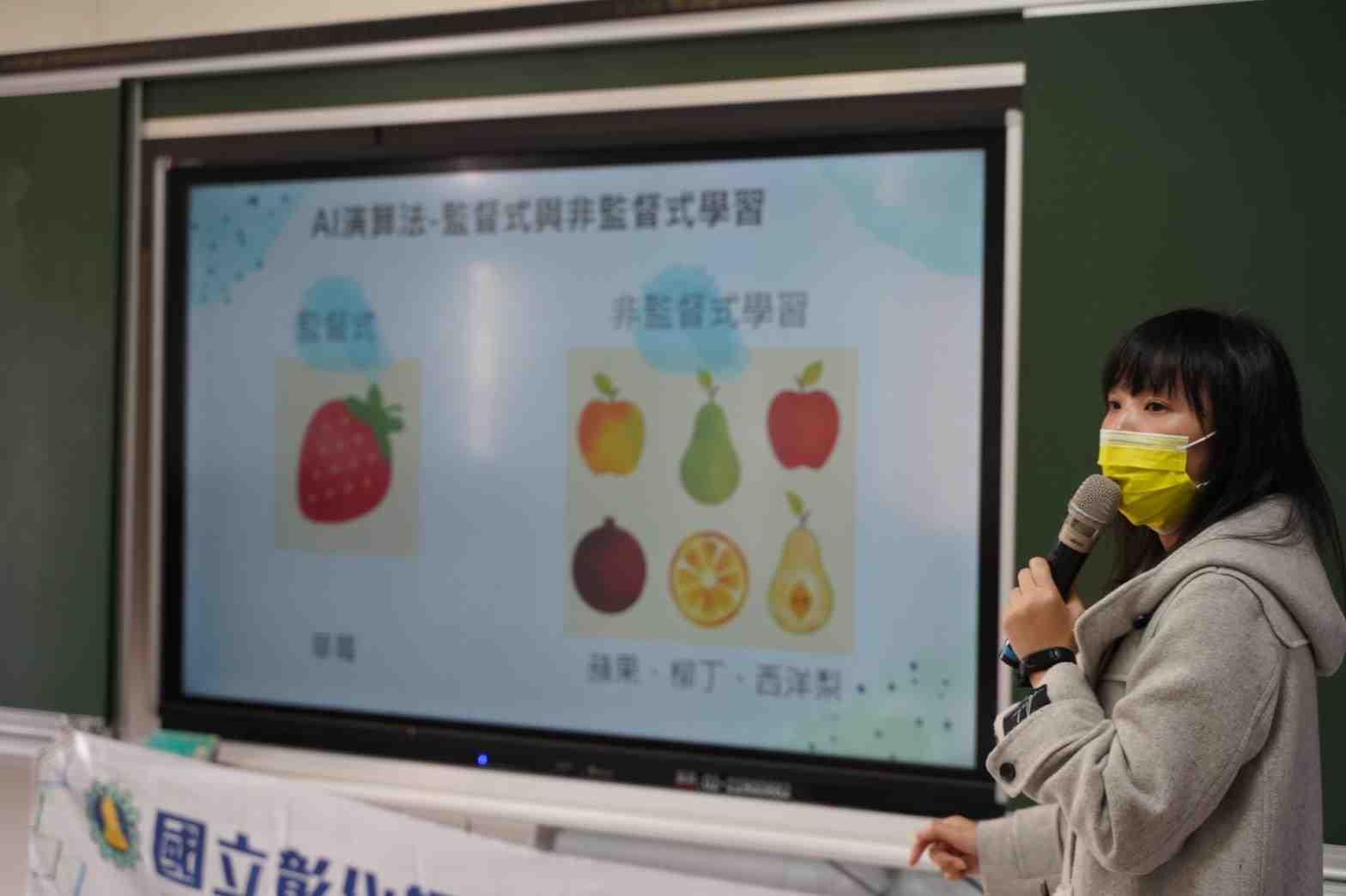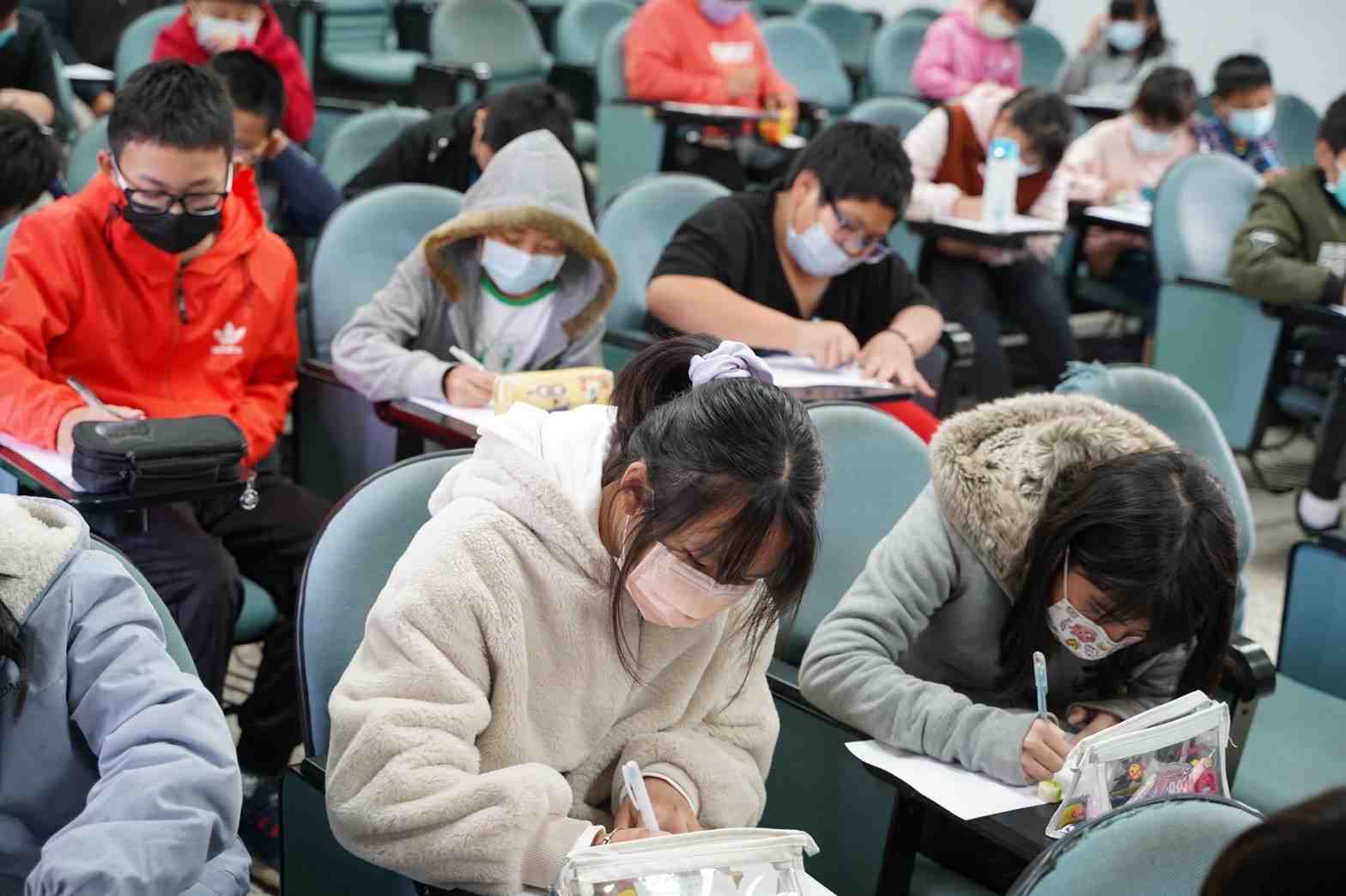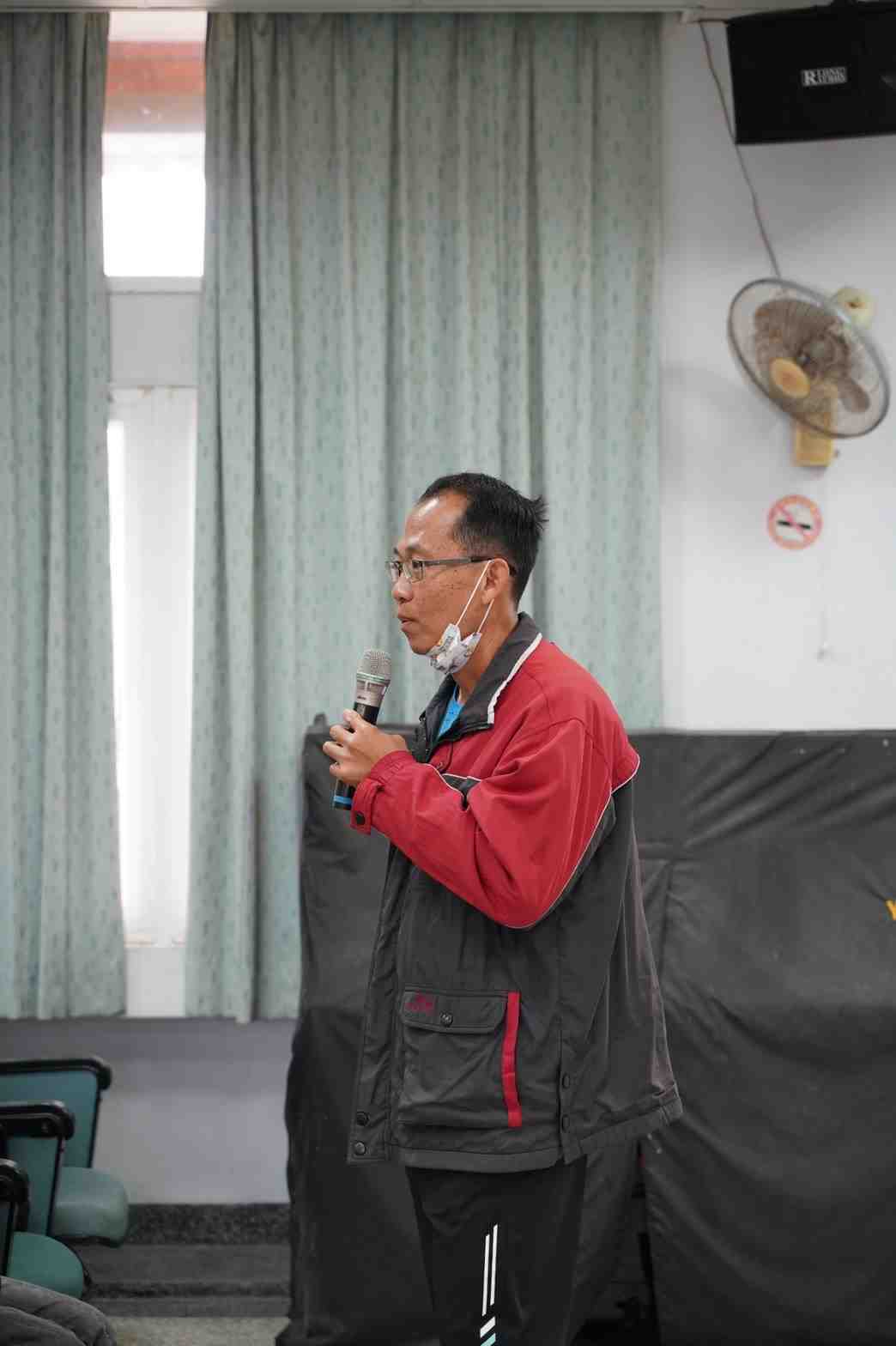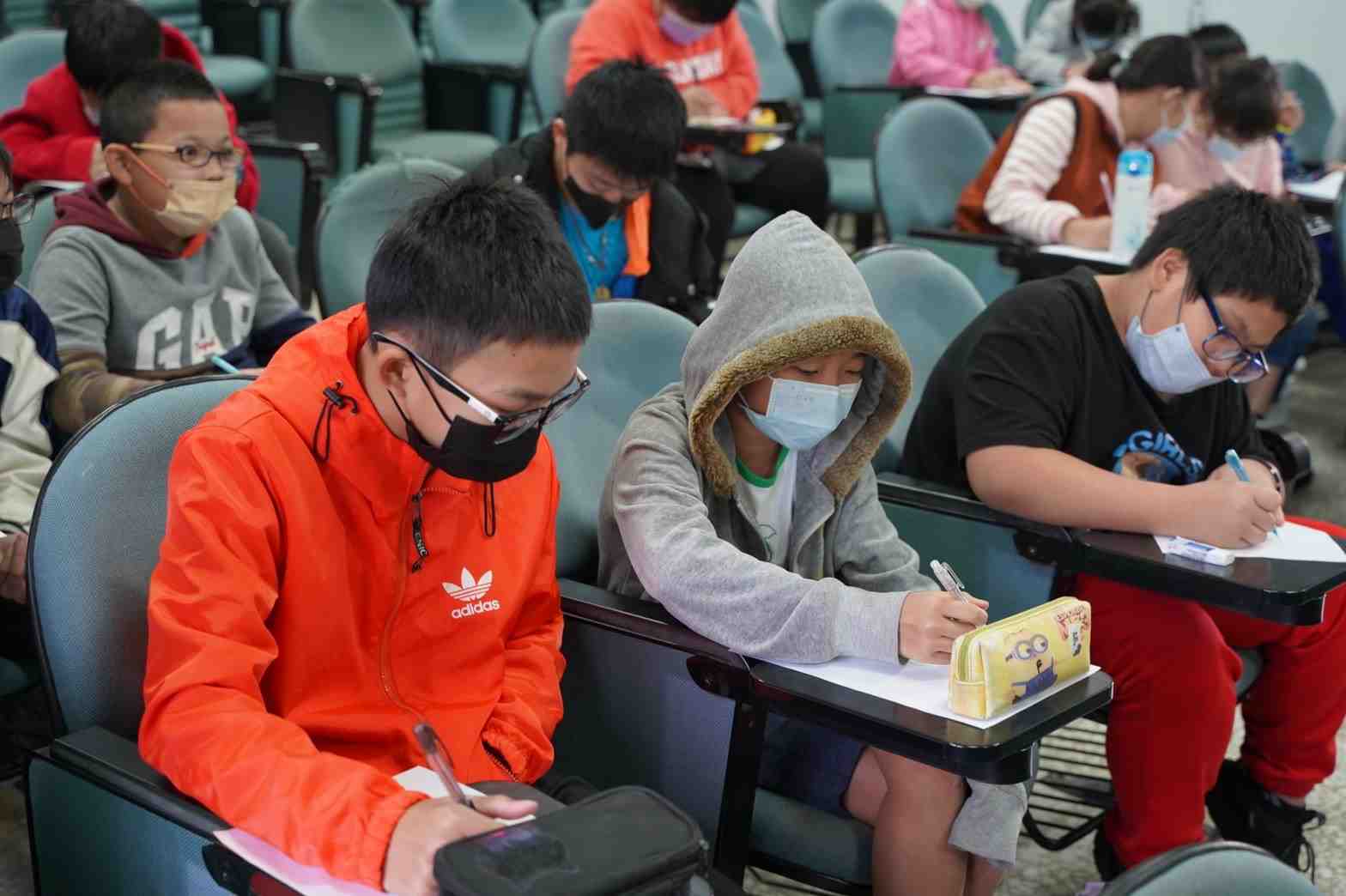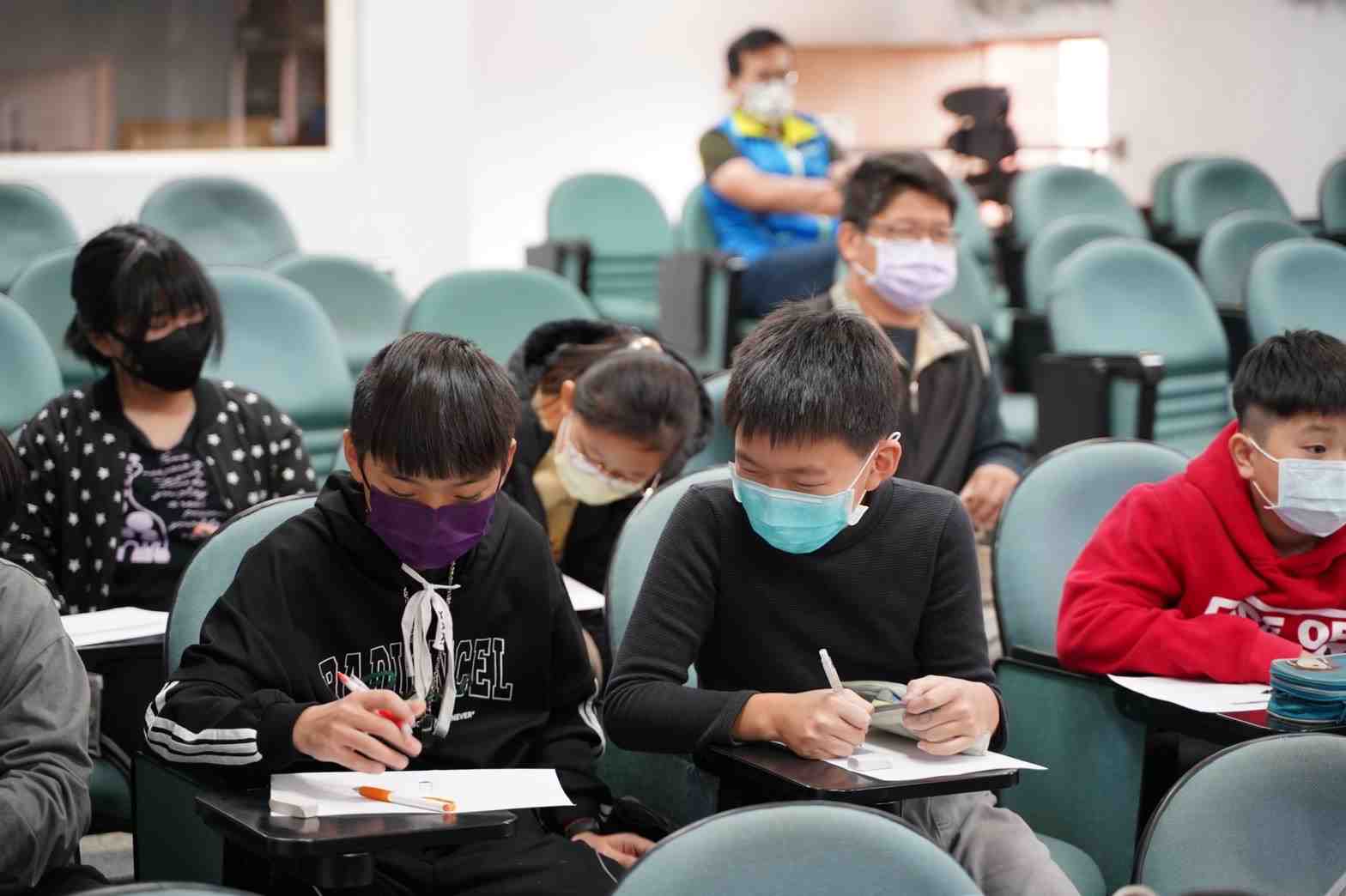Highlights
- Home /
- Highlights /
- Non-urban and non-mountainous school science education activities.
Non-urban and non-mountainous school science education activities.
 Science Communication
Science Communication
Have you ever heard someone say, \Artificial intelligence is amazing! It can help doctors diagnose patients, parking lots can automatically recognize license plates, and even AI can create a unique design just for you.\ But how does artificial intelligence work in the world of computers? What are the differences between its thinking process and human thinking? How did humans come up with the idea to develop artificial intelligence? Let's explore the mysterious universe of humans and computers and discover the amazing power of artificial intelligence together!The activity is divided into two parts:(1) Exploring the origins and applications of artificial intelligence(2) First experience with artificial intelligence.
Activity Goals aligned with SDGs Projects


Goal
Science Cultivation
Type of event
100 scientist story
Experimental Demonstrations
Organizer
National Changhua University of Education Science Education Center
Event Audience
Junior high and elementary school teachers.
Contact
Telephone Number
04-7232105#3013
cjying@cc.ncue.edu.tw
Result
Let me be friends with my computer, explore the computer world together, and understand the magical power of artificial intelligence!Do you often hear someone say: "Artificial intelligence is great, you can help doctors see patients, parking lots can automatically identify the license plate number, and even AI can help you draw your own unique design." How does artificial intelligence in the computer universe be how artificial intelligence is? What is the operation? What is different from human thinking mode? How do humans think of artificial intelligence? Let us enter the mysterious universe of humans and computers together, and explore the magical power of artificial intelligence together!nThe activity is divided into two parts:n(1) Explore the origin and application of artificial intelligencen(2) First experience of artificial intelligenceArtificial Intelligence (AI) refers to the ability to allow machines to simulate human wisdom and realize intelligence through computer programs and algorithms. Early AI was mainly based on logical reasoning and symbolic operations, but because symbolic operations needed a lot of manual definition and programming, there was a great restriction on the application of the real world.With the development of technologies such as machine learning, deep learning, and neural networks, modern AI has made huge progress and has become one of the key technologies in various fields. In various fields such as medical, finance, transportation, security, and entertainment, the application of AI has penetrated into people's lives.n
Number of Participants40人
Featured events
Contact Us
- Tel: 02-7749-6818
- Email: iybssdtw@gmail.com
Adviser

自然科學及永續研究發展處
Organizer
國立臺灣師範大學科學教育研究所、自然科學及永續研究推展中心、國立成功大學材料科學及工程學系、台灣物理學會、中國化學會
Co-organizer
中央研究院永續科學中心、中原大學物理學系、中華民國數學會、行政院原子能委員會、財團法人國家實驗研究院國家高速網路與計算中心、財團法人國家衛生研究院、高雄市政府教育局、國立中央大學科學教育中心、國立中正大學科學教育中心、國立成功大學科學教育中心、國立自然科學博物館、國立東華大學科學教育中心、國立科學工藝博物館、國立海洋生物博物館、國立海洋科技博物館、國立高雄大學科學教育中心、國立高雄師範大學、國立清華大學跨領域科學教育中心、國立彰化師範大學、國立臺灣大學科學教育發展中心、國立臺灣科學教育館、國家衛生研究院、淡江大學科學教育中心、逢甲大學綠能科技暨生技產業發展研究中心、臺北市政府教育局、臺灣永續棧、臺灣海洋聯盟、臺灣港務股份有限公司
